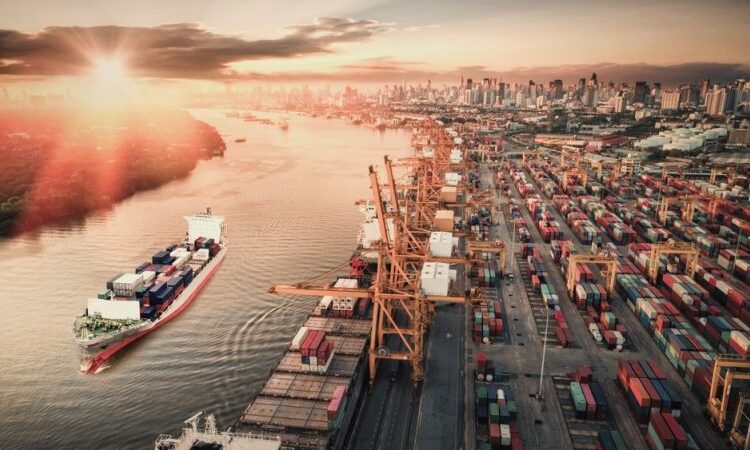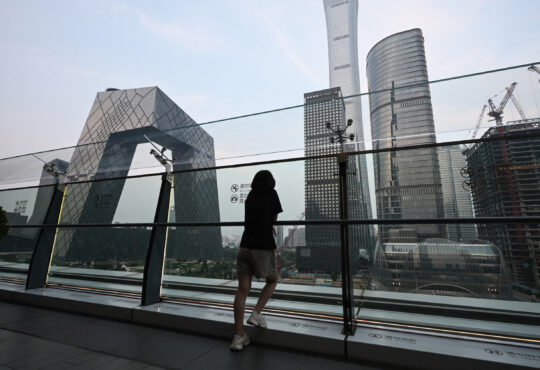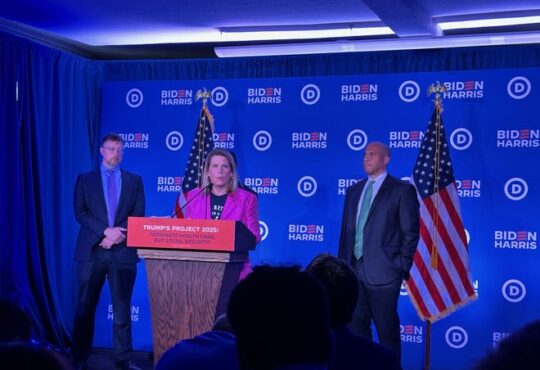
EU leaders are sounding the alarm on Europe’s competitiveness falling behind. The bloc’s economic muscles have atrophied while the United States and China are pushing the world into the next generation of innovation and industry. Deep changes are required, and the next European Commission needs to answer the call, write Eduardo Castellet Nogués and Matthew Eitel.
Eduardo Castellet Nogués is a program assistant for the Digital Innovation Initiative at the Center for European Policy Analysis (CEPA), a Washington-based think tank. Matthew Eitel is the special assistant to CEPA’s president and CEO
Europe is facing two crises that will define its common future. Russia’s ongoing war of aggression against Ukraine remains an immediate threat to a Europe whole, free, and at peace.
But French President Emmanuel Macron and German Chancellor Olaf Scholz see another “mortal” threat to Europe — a competitiveness crisis.
A growing chorus of officials, analysts, and industry executives are concerned that Europe cannot compete with the US, China, and others in key areas of the global economy.
In 2008, the EU and the US had roughly the same GDP — over $14 trillion — but in 15 years the US nearly doubled its GDP to $27 trillion, while the EU’s barely increased to over $16 trillion. The EU’s GDP expanded 0.5% in 2023, while the US’ increased 3.1% and China’s jumped 5.2%.
The next European Commission must tackle this structural gap with deep reforms, and by articulating a new vision for rebuilding a competitive Europe — and it should do so by appointing an Executive Vice President and European Commissioner for Competitiveness.
Europe’s innovation and investment ecosystem faces a crisis of confidence. Europe hosts only 14% of the world’s unicorns — private startups valued over $1 billion — while the US boasts half of them. Almost 60% of European CEOs expect more investment growth outside of Europe over the next six months than in it.
Business leaders point to the same culprit as Macron and Scholz: the EU’s regulatory zeal. Börje Ekholm, CEO of Swedish telecommunication giant Ericsson, argues overregulation is “driving Europe to irrelevance” and will leave Europe with “no industry left.”
Recent numbers appear to back Ekholm. Industrial production in the EU decreased by 5.7% from 2023 to 2024, the highest annual drop since the COVID-19 pandemic. US industrial production dropped by less than .5% in the same period.
A European Council-mandated report from former Italian Prime Minister Enrico Letta cites lack of scalability as another cause. When crafting the EU Single Market, leaders left out the financial and telecommunications sectors, arguing member states should control them.
This decision created fragmented, oversaturated markets. The EU’s average consumers per telecommunications provider is five million — in the US, it is 107 million; in China, over 400 million. Small, regional banks can offer affordable prices, but they cannot offer the capital necessary for scaling.
It also created a bloated Commission. Three Commissioners were responsible for these markets in President von der Leyen’s first term: Competition, Internal Market, and certain offices within the Directorate General for Trade.
Letta recommended integrating these sectors into the Single Market to boost Europe’s competitiveness. The next Commission should follow suit by consolidating responsibilities for industrial policy and economic security under a new Competitiveness Commissioner.
This role would oversee Commissioners responsible for trade, competition, digital standards, finance, and the internal market. It would drive the integration of the European Single Market, complete the Capital Markets Union, and implement the Critical Raw Materials Act and European Chips Act. The Commissioner would serve as the EU’s primary authority on how digital regulations affect the vitality of European markets.
The Commissioner would also head a new Directorate General for Economic Security (DG ECSEC), which would screen both inbound and outbound investments in strategic supply chains. It would coordinate efforts to create a common EU export controls regime — such as implementing a single-entity list — and to secure research and intellectual property.
The role would help foster transatlantic alignment. The EU-US Trade and Technology Council was hamstrung by the number of principals and working groups involved — and it may not survive upcoming US elections. The Commissioner and DG ECSEC could maintain critical dialogues on trade and technology policies with international partners as the EU’s main point of contact.
The global relevance of the European project depends on restoring the bloc’s economic performance: It can take a symbolic and practical step to recover its heavyweight title, and that’s what the appointment of an Executive Vice-President in charge of Competitiveness would do.






